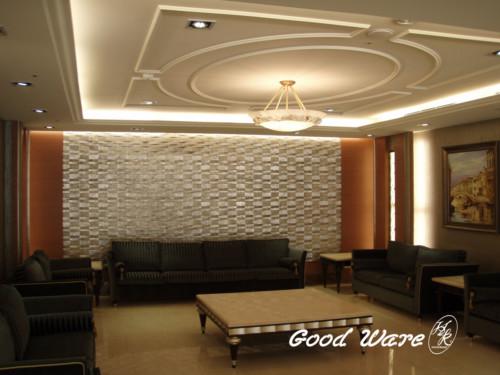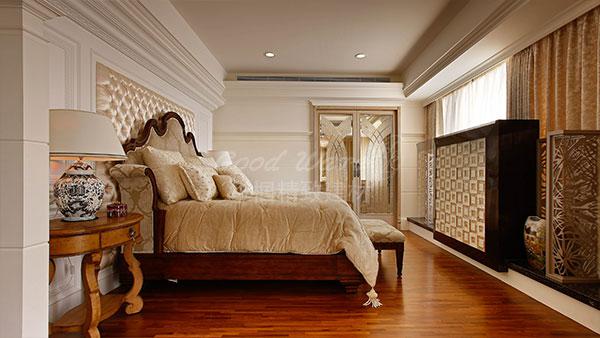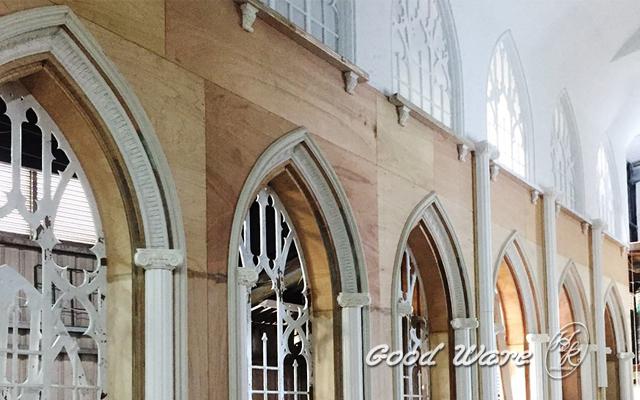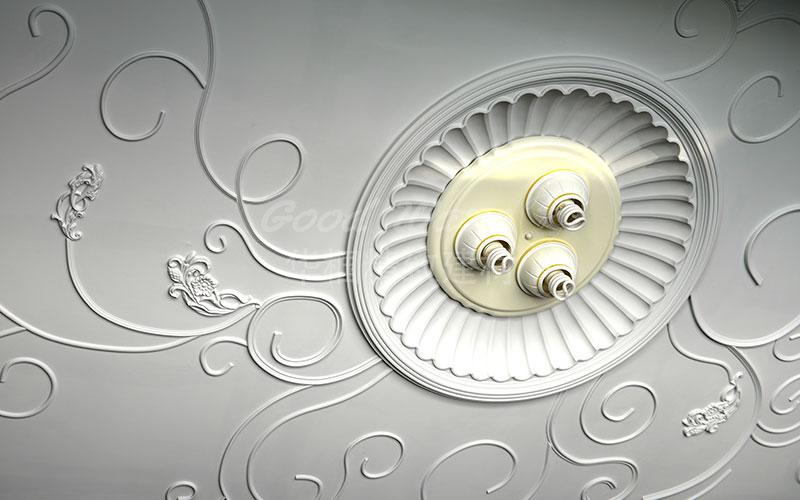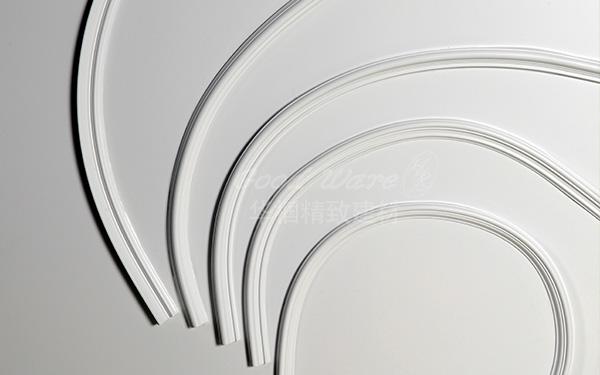Adding crown molding enhances decor of any room. With modern molding materials you can achieve classical elegance on any budget. Whether your tastes run more to modern or you prefer traditional, there’s a perfect molding to complement your room.
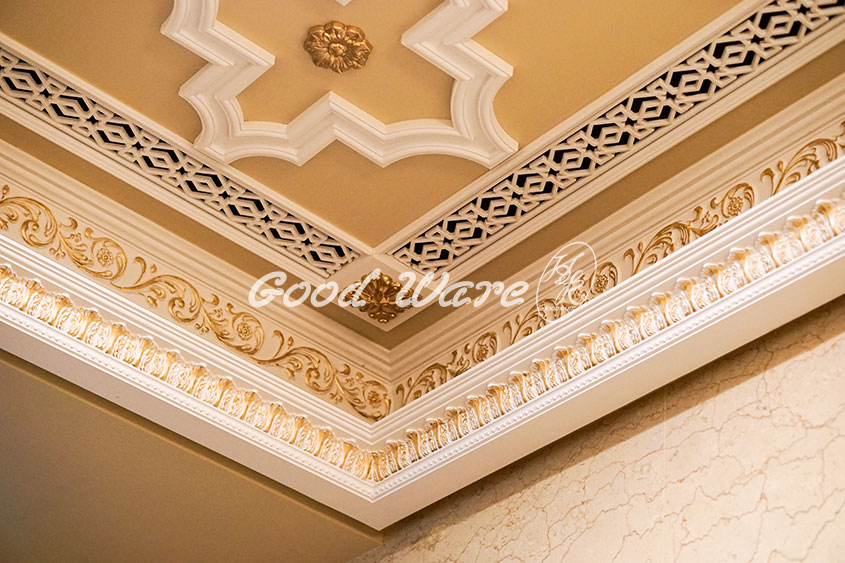
You may also like our polyurethane moldings
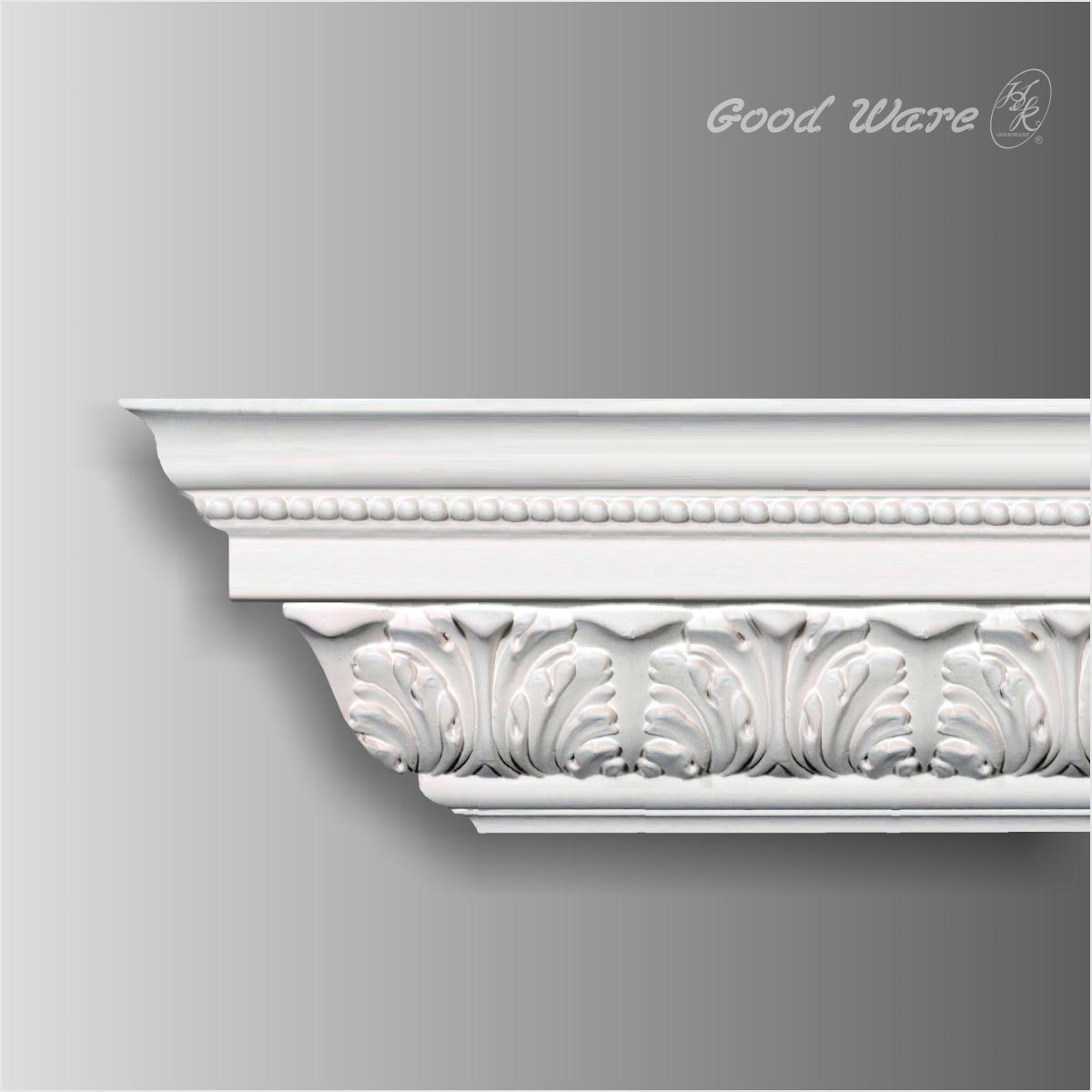 |
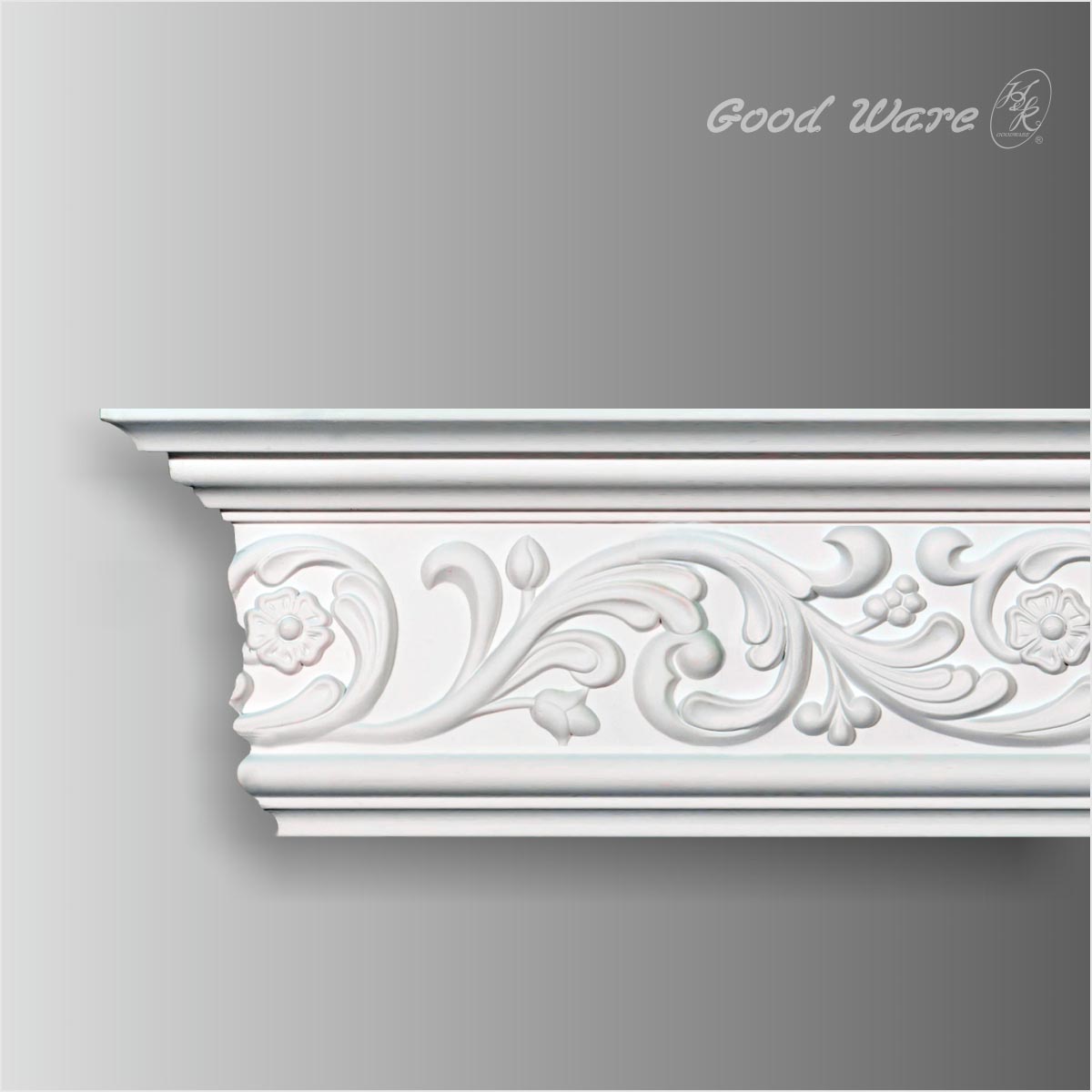 |
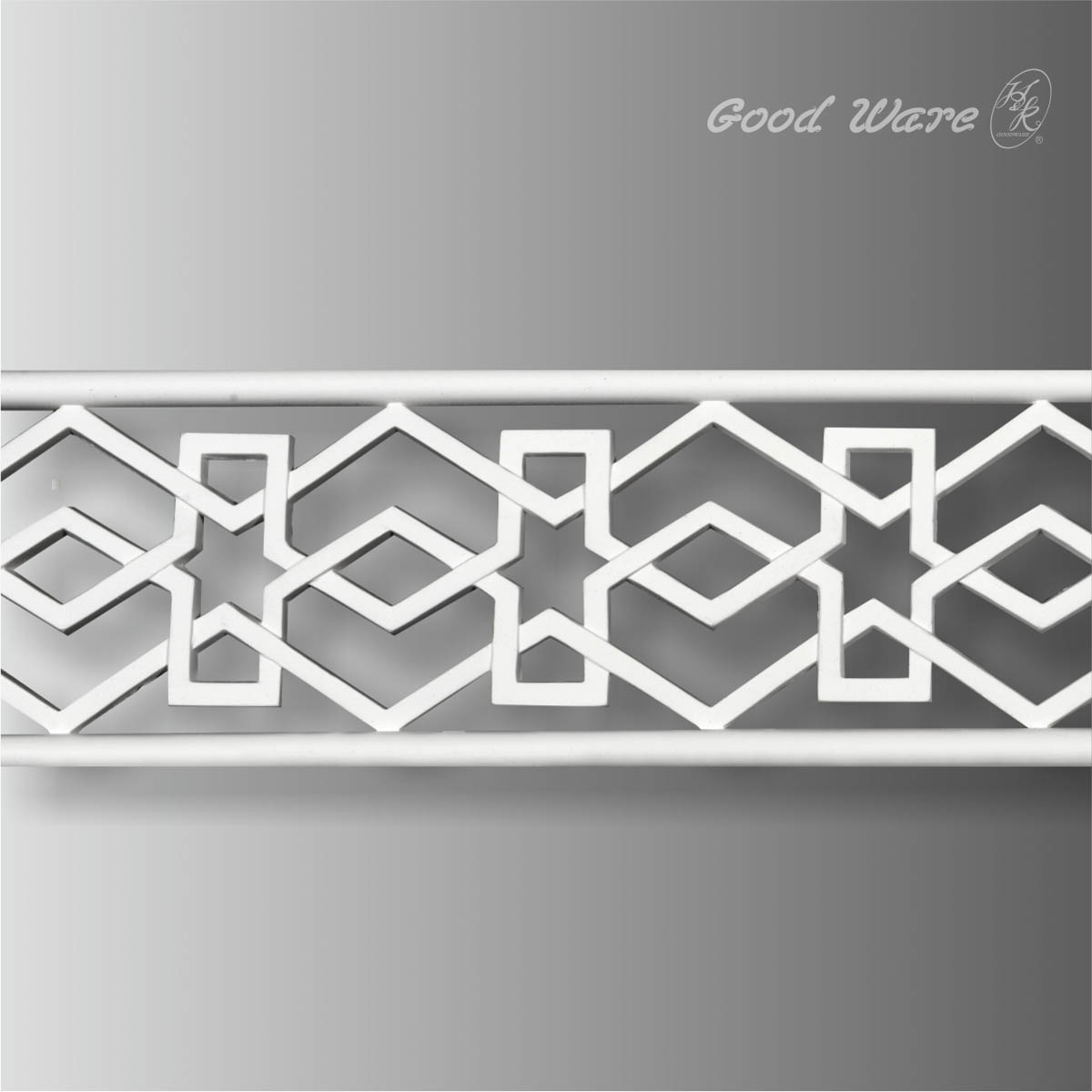 |
||
| GM-0133 Acanthus leaf crown molding | GM-0106 Polyurethane crown molding | WP-1867 Pierced chair rail molding |
Although crown molding is often found in historic homes that feature specific architectural styles, designers and savvy homeowners have discovered that applying this type of molding as a decorative supplement can enhance the look and feeling of any room. With the advent of new production methods, molding prices have dropped so that these charming features can satisfy many design budget.
Crown molding dates back to the time of the ancient Greeks and Romans, but it also looks fresh and exciting in today’s homes. Crown molding was originally developed as a way to disguise imperfections where ceilings and walls joined each other within a room, but current building standards have done away with this problem. Instead, today’s styles of moldings are used as decorative devices, adding interesting details to the upper reaches of a room. Indeed, many rooms somehow seem incomplete when they lack this important finishing touch.
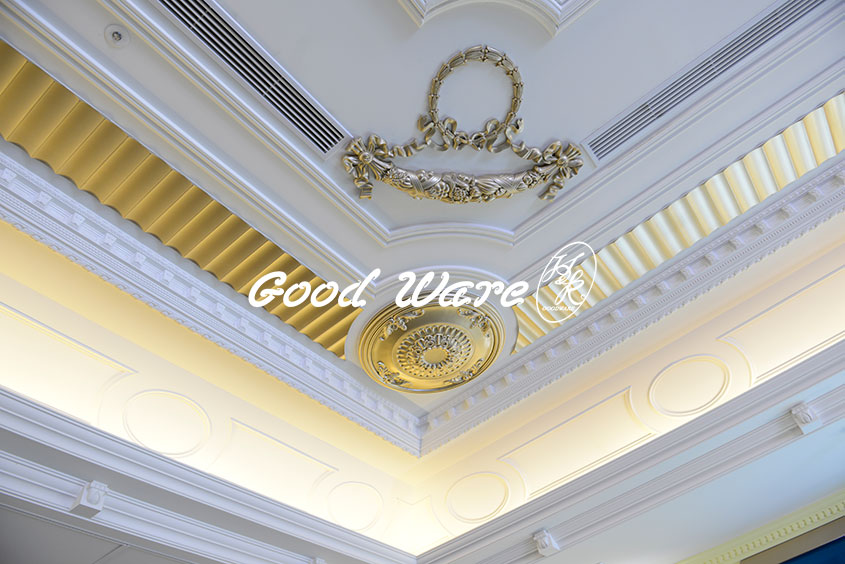
You may also like our polyurethane moldings
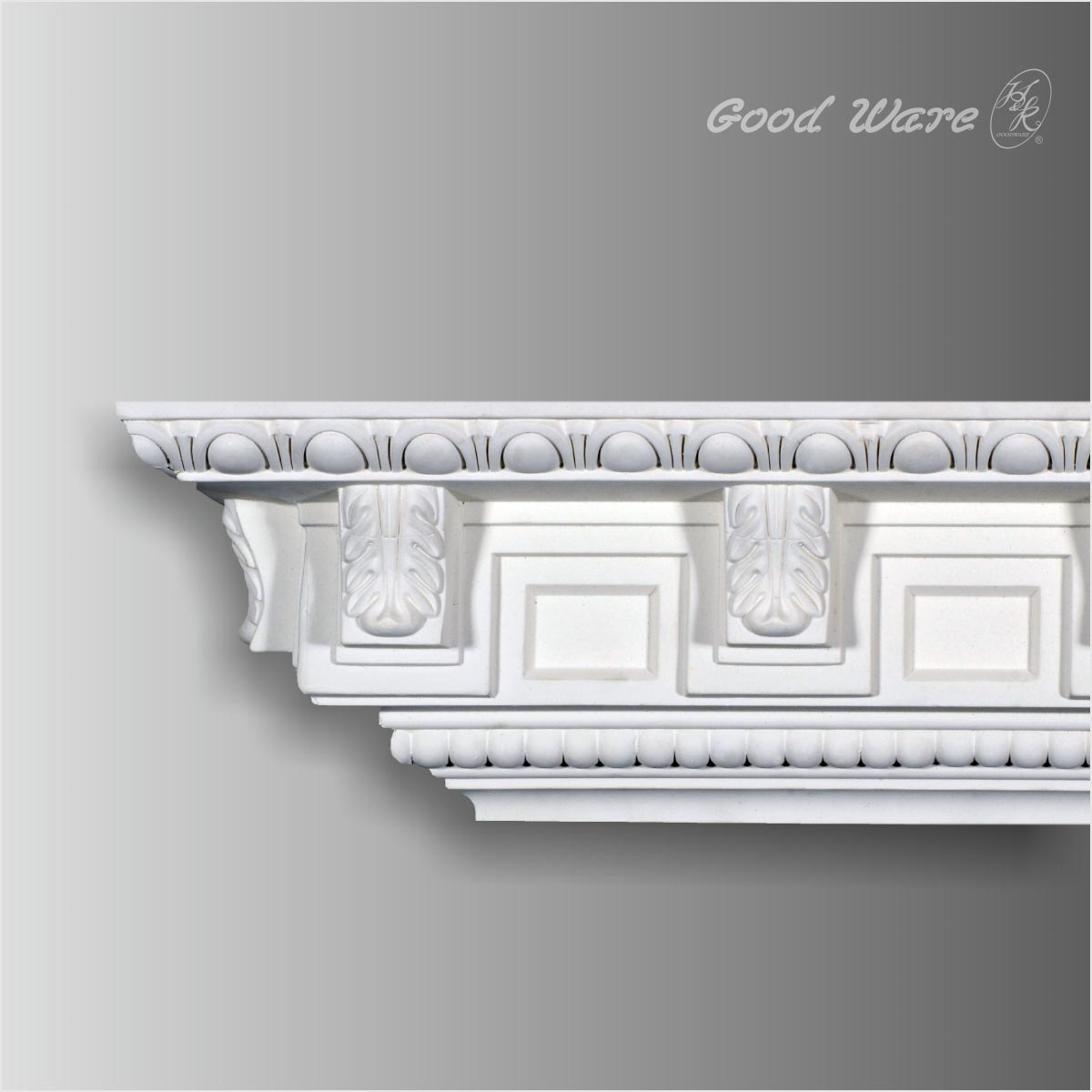 |
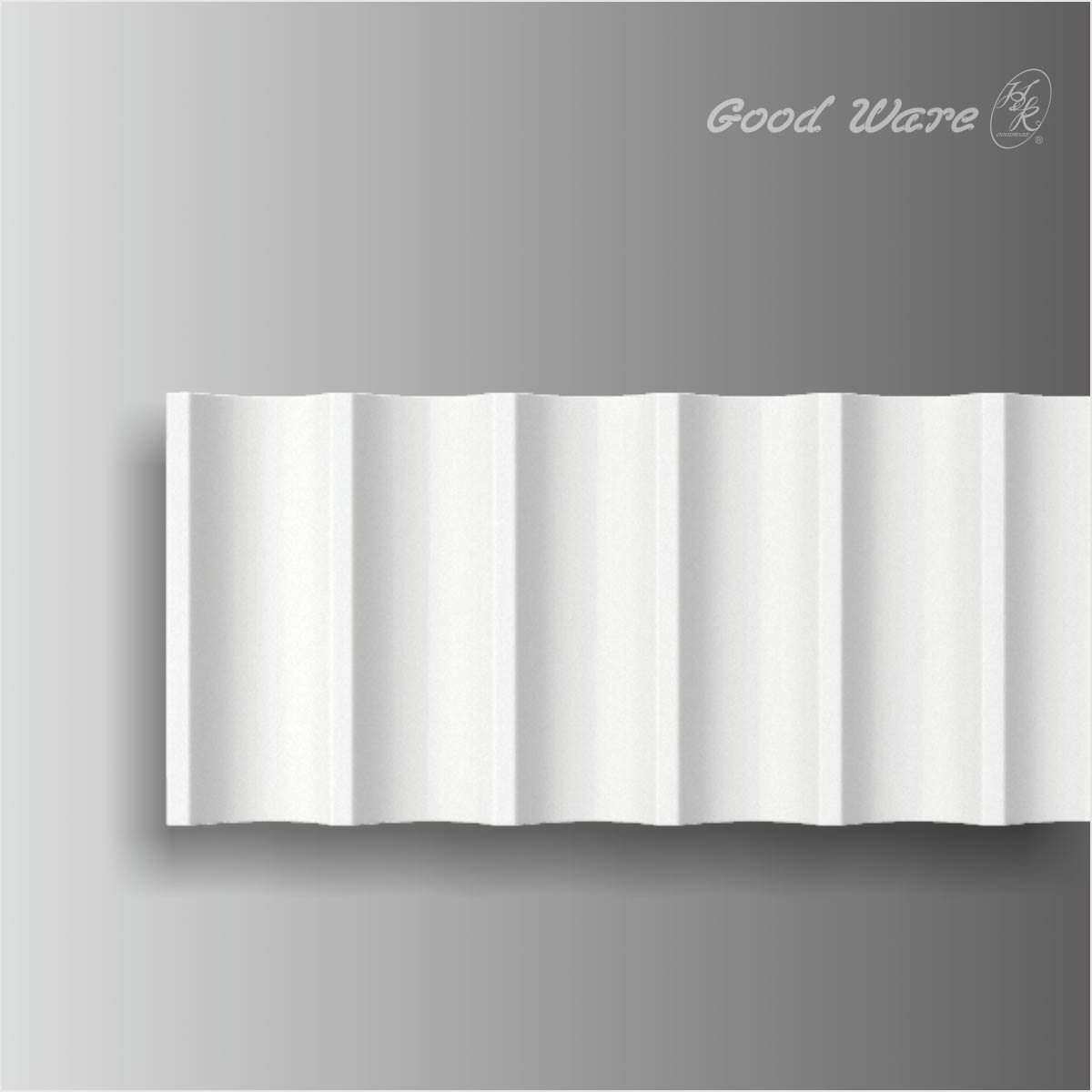 |
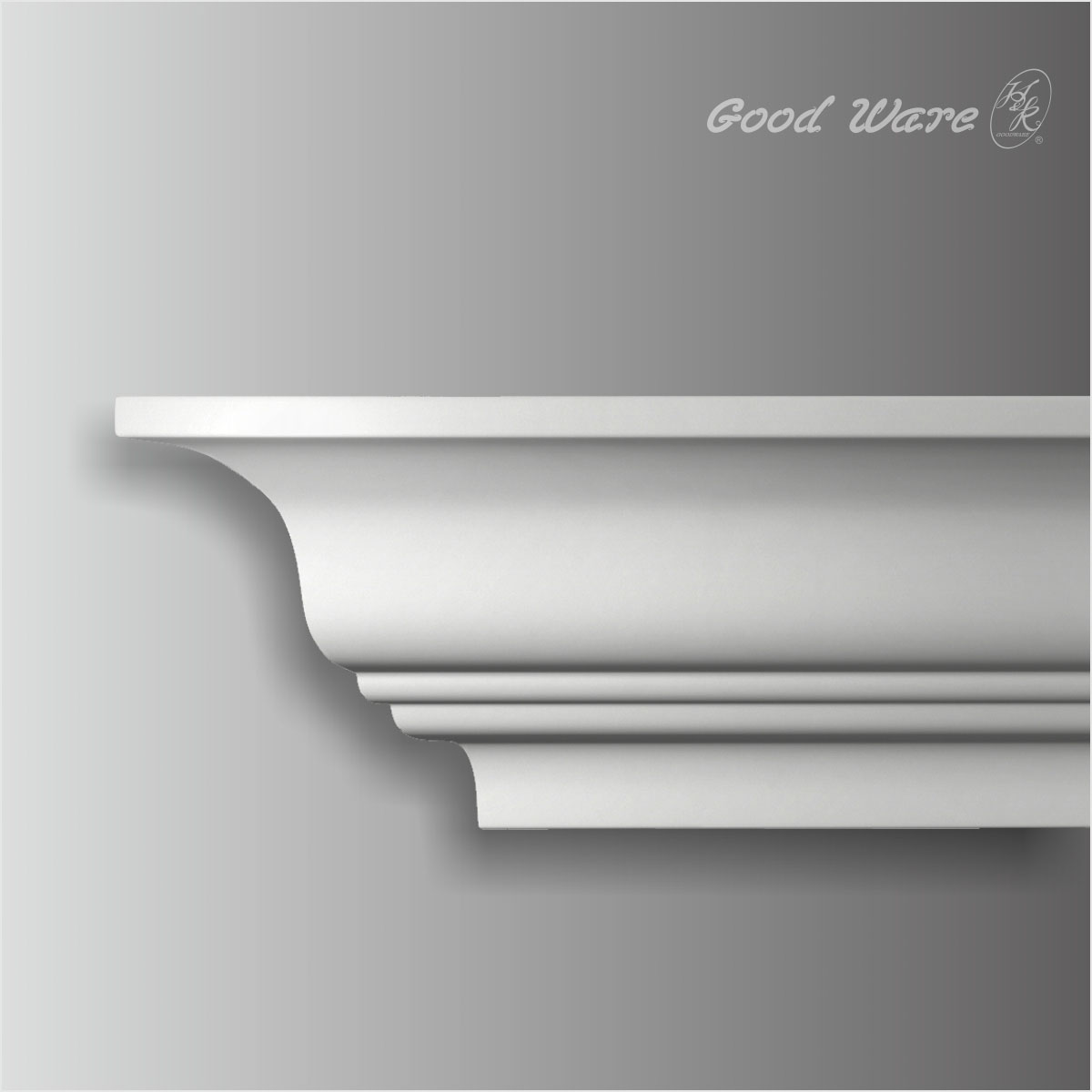 |
||
| GM-0137 European style crown molding | HK-720 Chair rail molding | HK-365 Simple crown molding |
The wide variety in molding styles means that it can enhance almost any type of architecture, so whether your tastes run more to modern or you prefer ornate furnishings and embellishments, there’s a perfect molding to complement your room. You might be thinking of adding molding along the lines of your home’s style when it was originally built, or instead maybe you are looking for ways to add details that coordinate with your existing furniture. Either way, the wide range of molding will ensure that the finished product will add a graceful complement to the area where the room’s walls and ceiling meet.
Some of the better-known styles of this type of molding include:
Dentil crown molding: a molding style often used in Federal, Georgian, and Early Classic Revival architectural style, this type of molding is comprised of a thin band that includes symmetrical rectangles or squared-off beads.
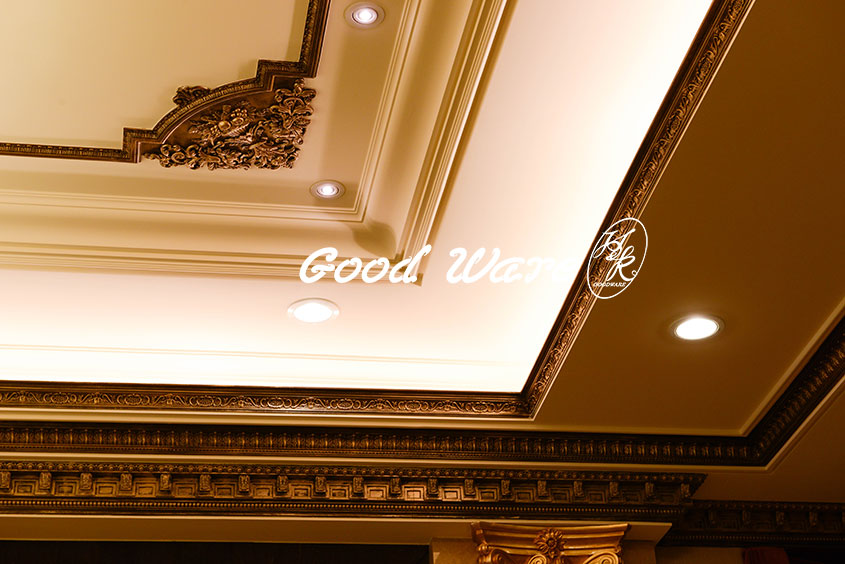
Cavetto or Cove molding: found in classical architectural styles and Egyptian temples, this type of molding derives its name from the Italian word that means “to hollow.” Concave in shape, Cavetto molding features a quarter-round circle with the top part of the circle segment extending over the lower portion.
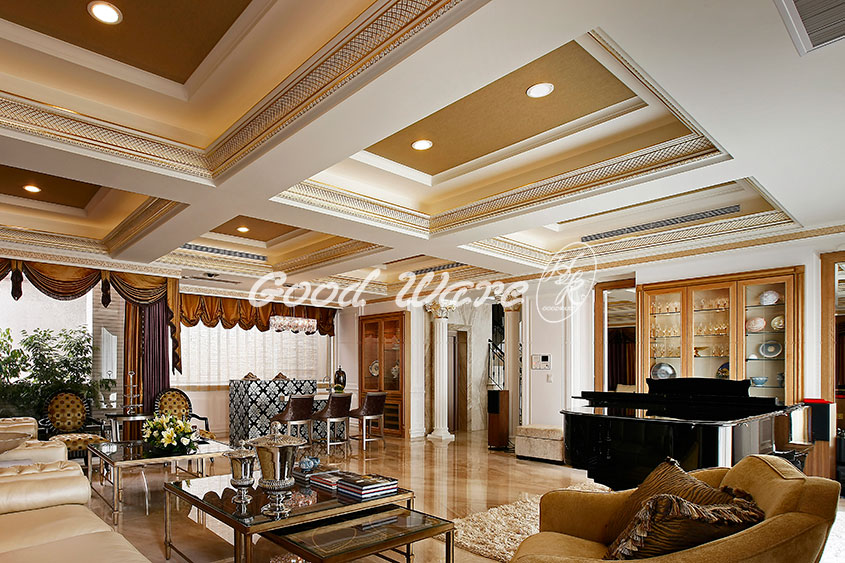
Egg and Dart molding: a popular design with alternating ovals and V-shapes, this molding has its origins in ancient Greek architectural styles.
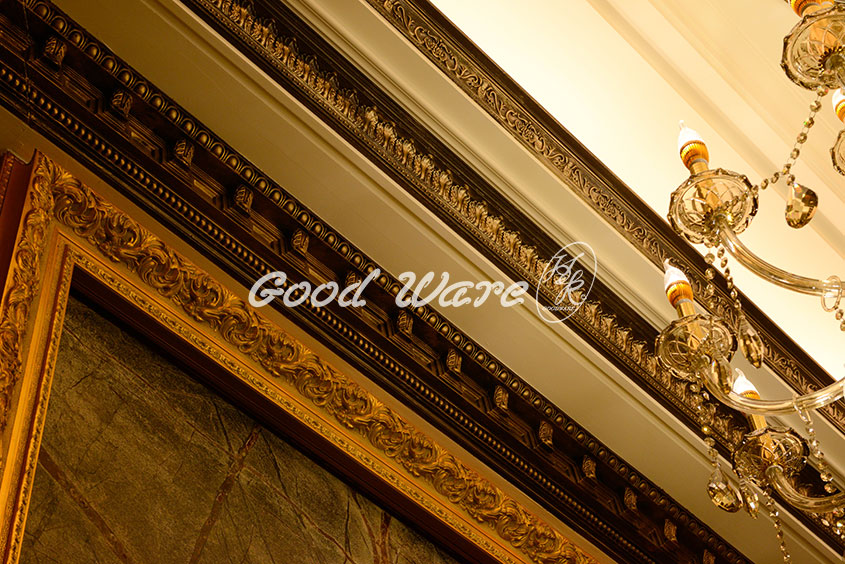
While most homeowners use crown molding at the top of a wall where it meets the ceiling, the use of this molding in other ways can add interest and flair to a room’s decor. For example, when applied to a door, this type of molding can draw the eye to the door area and transform a plain door into an elegant object. Another creative way to use crown molding is to frame a mirror; dressing up a mirror with molding around the perimeter can help to turn the mirror into a focal point much like a piece of artwork.
Whether you choose to use this decorative molding to mark the transition from wall to ceiling or apply it in some other creative fashion, expect your room’s style and beauty to be artfully enhanced.
You may like: Baroque crown molding What is Crown molding? How to install Crown molding?
Learn more information on H&K GOODWARE
Contact us:customer.en@goodware.com.tw

